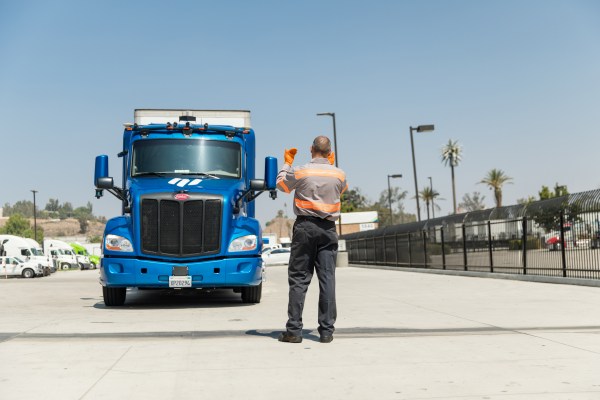California bill to ban driverless autonomous trucks goes to Newsom’s desk

In a blow to the autonomous trucking industry, the California Senate passed a bill Monday that requires a trained human safety operator to be present any time a self-driving, heavy-duty vehicle operates on public roads in the state. In effect, the bill bans driverless AV trucks.
AB 316, which passed the senate floor with 36 votes in favor and two against, still needs to be signed by Gov. Gavin Newsom before it becomes law. Newsom has a reputation for being friendly to the tech industry, and is expected to veto AB 316. In August, one of the governor’s senior advisers wrote a letter to Cecilia Aguiar-Curry, the bill’s author, opposing the legislation. The letter said such restrictions on autonomous trucking would not only undermine existing regulations, but could also limit supply chain innovation and effectiveness and hamper California’s economic competitiveness.
Advocates of the bill, first introduced in January, argue that having more control over the removal of safety drivers from autonomous trucks would protect California road users and ensure job security for truck drivers.
“AV companies have lost billions of dollars in the self-driving vehicle space over the last few years and are now trying to appease their investors by imposing unsafe, inadequate products on the public,” said Jason Rabinowitz, president of Teamsters Joint Council 7, in a statement. “These corporate elites have no regard whatsoever for the safety or prosperity of the communities they will put in harm’s way. Gov. Newsom needs to do right by Californians — not these companies — immediately.”
AV companies and industry representatives say the bill would not only defeat the purpose of driverless technology, but it would also hinder the advancement of technology that can save lives. Opponents of AB 316 point to the 5,788 truck crash fatalities that occurred in 2021, a 47% increase over 10 years. They compare that statistic to the zero fatalities caused by AV trucks in over two years of reporting and tens of millions of miles driven on public roads.
Of course, almost all of those miles driven had a human safety operator behind the wheel.
The California Department of Motor Vehicles, the agency tasked with providing testing and deployment permits for AVs in the state, currently has a ban on AVs weighing over 10,001 pounds in the state. AB 316 was written in anticipation of the DMV lifting that ban. It blocks the agency from being able to sign off on autonomous trucking companies removing the driver for testing or deployment purposes, power the agency has held since 2012.
The authors of the bill previously told TechCrunch they don’t want to stop driverless trucking from reaching California in perpetuity — just until the legislature is convinced it’s safe enough to remove the driver.
Per the bill’s language, the DMV will now need to provide evidence of safety to policymakers. By January 1, 2029, or five years after testing begins (whichever is later), the DMV will need to submit a report to the state to evaluate the performance of AV technology and its impact on public safety and employment in the trucking sector. The report will include information like disengagements and crashes, as well as a recommendation on the need for human safety operators in heavy-duty AVs.
After approval, the DMV will have to wait another year before issuing permits. That means California might not see autonomous trucks operating with no human in the front seat until 2030 at the earliest.
“DMV opposes AB 316 because it will not increase safety and will, in fact, have a chilling effect on the development of technology in California that is intended to result in increased safety benefits on our roadways,” said the DMV in a statement.

